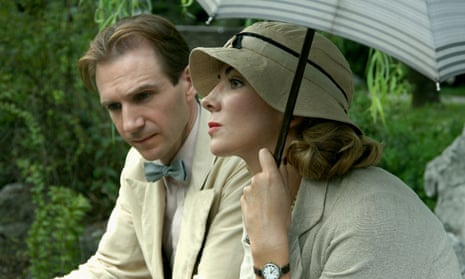A blind diplomat. An exiled countess. And a city that will change their destinies forever.
In the waning days of 1930s Shanghai, a city poised between opulent beauty and looming chaos, The White Countess paints a portrait of love and loss under the shadow of history. At its heart is Countess Sofia Belinskya, a Russian aristocrat displaced by the Bolshevik Revolution, now surviving as a hostess in a nightclub—a far cry from the life of privilege she once knew. Into her world drifts Todd Jackson, a blind American diplomat whose quiet demeanor conceals a profound grief and disillusionment. Their meeting is less a spark than a slow burn, a fragile connection formed in a city where every glance may be the last.
The film, directed by James Ivory, unfolds with the elegance of a fading photograph, where the vibrancy of the present is always tinged with the melancholy of what’s been lost. Shanghai itself becomes a character—its neon-lit streets hiding both glamour and decay, its cosmopolitan allure masking the political tensions tightening around it. For Sofia, each evening at the club is a dance between survival and dignity; for Jackson, the city offers the illusion of escape, even as war looms on the horizon.

Sofia’s journey is steeped in quiet resilience. She carries the weight of her family’s exile, the burden of raising her young daughter, and the knowledge that her beauty and charm are both her tools and her chains. Jackson, meanwhile, navigates the darkness not only of his blindness but of his own wounded spirit. Together, they form an unlikely alliance—two people stranded between the wreckage of the past and the uncertainty of the future.
The war’s approach becomes the film’s invisible drumbeat, growing louder with each passing scene. Japanese occupation forces encroach upon the city, and whispers of impending violence seep into every corner. The lovers’ moments of tenderness are framed against this rising tide, making their bond all the more fragile, all the more urgent. Yet The White Countess resists melodrama, favoring the subtleties of gesture, the unspoken truths in a shared silence, and the ache of partings that may be permanent.

Ralph Fiennes brings Jackson to life with a performance of understated depth, his stillness allowing emotion to surface in fleeting expressions. Natasha Richardson’s Sofia is luminous and layered, a woman who refuses to surrender her humanity even when the world strips away her illusions. Their chemistry is not fiery but profound—an intimacy forged through mutual recognition of loss. The supporting cast, including Vanessa and Lynn Redgrave, adds texture to the world, their characters mirroring the displaced lives scattered by history’s storms.
Ultimately, The White Countess is not merely a romance but a meditation on exile, resilience, and the fleeting beauty found in unlikely places. It lingers like the memory of a song heard in a distant room, reminding us that even in times of darkness, the heart can find a reason to keep beating. In the final images, as Shanghai’s lights dim under the shadow of war, Sofia and Jackson’s story becomes not just theirs, but a testament to the countless lives shaped—and shattered—by the tides of history.



